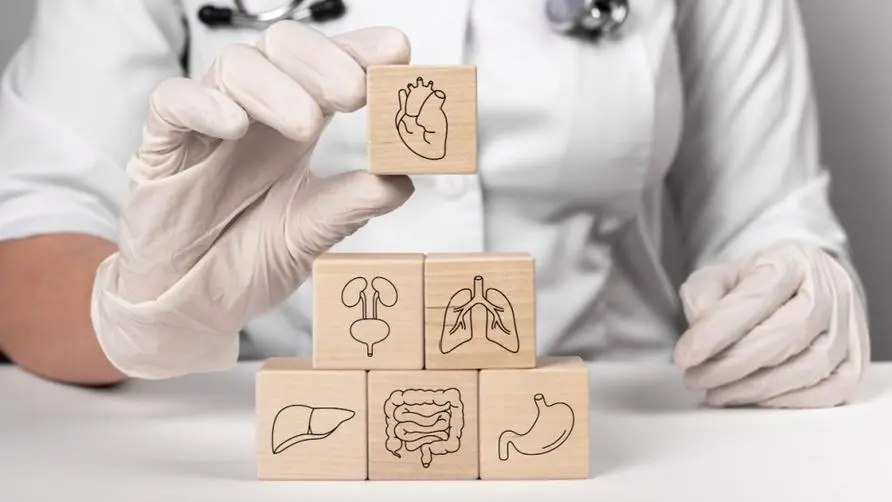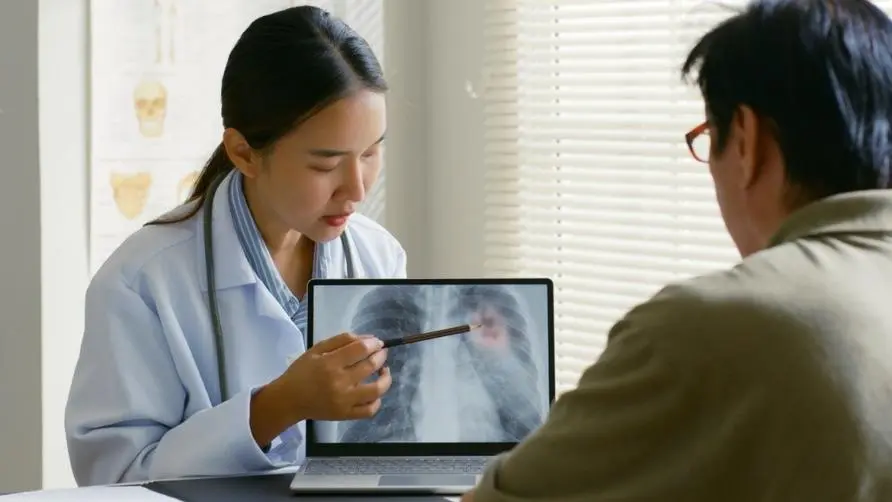A 32-year-old young man with hematuria was diagnosed with bladder cancer! Don't ignore the doctor if you have 3 symptoms while urinating: Stones are more dangerous

A young man in his 30s was diagnosed with bladder cancer with hematuria! Doctor: You should pay more attention if you have stones
Bladder cancer is one of the most common urinary tract tumors in Taiwan. According to the 2020 Cancer Registration Report, about 40% of newly diagnosed urinary organ tumors are bladder malignant tumors, and the incidence rate is the 11th highest among male cancers. Ding Yuantian, the attending physician of the Department of Urology at Guangtian General Hospital, said in an interview that the incidence rate of bladder cancer has increased in recent years, and there is a trend of getting younger. The youngest patient admitted was only 32 years old. He thought it was stones or inflammation and sought medical treatment because of hematuria. It was only later that he was unexpectedly diagnosed with bladder cancer.
Dr. Ding Yuantian pointed out that in the past, risk factors for bladder cancer were believed to be related to smoking, environmental pollution, chemical dyes or industrial dyes, and abuse of painkillers. Men are generally at a higher risk than women. However, in recent years, the age group at which bladder cancer is diagnosed may have declined due to life stress and environmental factors.
Urinary tract stones may also increase the risk of bladder cancer? Dr. Ding Yuantian said that it is true that some bladder cancer patients were further diagnosed with bladder cancer after being referred from other hospitals because of urinary tract stones. Both bladder cancer and urinary tract stones may cause painless hematuria. When symptoms such as stones and hematuria appear, you should go to the urology department as soon as possible to evaluate whether you need ultrasound, cystoscopy, etc., so as not to miss the opportunity to detect bladder cancer early.
Is painless hematuria a warning sign of bladder cancer? Watch out for 3 signs when urinating
Dr. Ding Yuantian reminded that as long as “hematuria” occurs, attention should be paid regardless of whether it causes pain or not. In the past, older people held misconceptions about hematuria, thinking that it was caused by excessive exercise or straining to urinate. They ignored the risk of serious urinary tract diseases. This is a very dangerous concept. There was also a patient who suffered from bladder inflammation and discomfort in urination. After more than a year of treatment in the clinic, the patient did not improve. Only then did he go to the hospital for ultrasound and cystoscopy, and the existence of a bladder tumor was discovered.
However, hematuria may not always be visible to the naked eye. Dr. Ding Yuantian explained that hematuria is divided into visible hematuria, which is obviously red in urine, and “microscopic hematuria” that is difficult to detect with the naked eye. Microhematuria must be discovered through urine testing. When you have urinary symptoms such as abnormal pain and discomfort when urinating, secretions similar to residue in the urine, or dark brown urine, you should check for inflammation, stones or malignant tumors as soon as possible.
Dr. Ding Yuantian pointed out that more than 90% of bladder cancers are “urothelial cancers”, and the treatment is relatively complicated. The highest priority is to remove the lesions through surgery, and then decide the next step of treatment based on the degree of tumor invasion. If it is superficial or non-muscle invasive bladder cancer, intravesical chemotherapy will be performed after surgery; if it is deep or muscle-invasive bladder cancer, bladder removal and subsequent systemic treatment must be considered.
Recurrent bladder inflammation should not be ignored! How to prevent bladder cancer?
Dr. Ding Yuantian reminded that people with stone problems are more likely to have hematuria, and hematuria is an important warning sign of bladder cancer. When hematuria occurs frequently, further examinations are necessary. Although the risk of bladder cancer is low among young people, if hematuria or repeated bladder inflammation occurs, it should not be ignored. It is recommended to seek medical attention as soon as possible for detailed examination, or to return for 1-2 consecutive months to check whether the urine is normal.
In addition, frequent contact with chemical dyes (dyes), plastic substances, smoking and second-hand smoke exposure may increase the risk of cancer. You should also pay more attention to whether you have abnormal urinary tract symptoms, such as urinary discomfort, abnormal secretions in urine, and dark urine, to avoid delays in seeking medical treatment.
Dr. Ding Yuantian said that environmental pollution is a risk factor for bladder cancer. You should reduce your exposure to harmful chemicals. Smoking in particular will increase the incidence of various cancers. It is recommended to quit smoking and avoid exposure to second-hand smoke. Insufficient water intake can easily increase urinary tract diseases and even cause carcinogens to continue to irritate the bladder. It is best for men to drink 2,000-2,500cc of water every day, and for women, it is recommended to drink 1,800-2,000cc of water every day. People who are overweight and sweat a lot should pay more attention to hydration. Maintaining a healthy diet and good living habits are also common rules for preventing various cancers.
Further reading:





